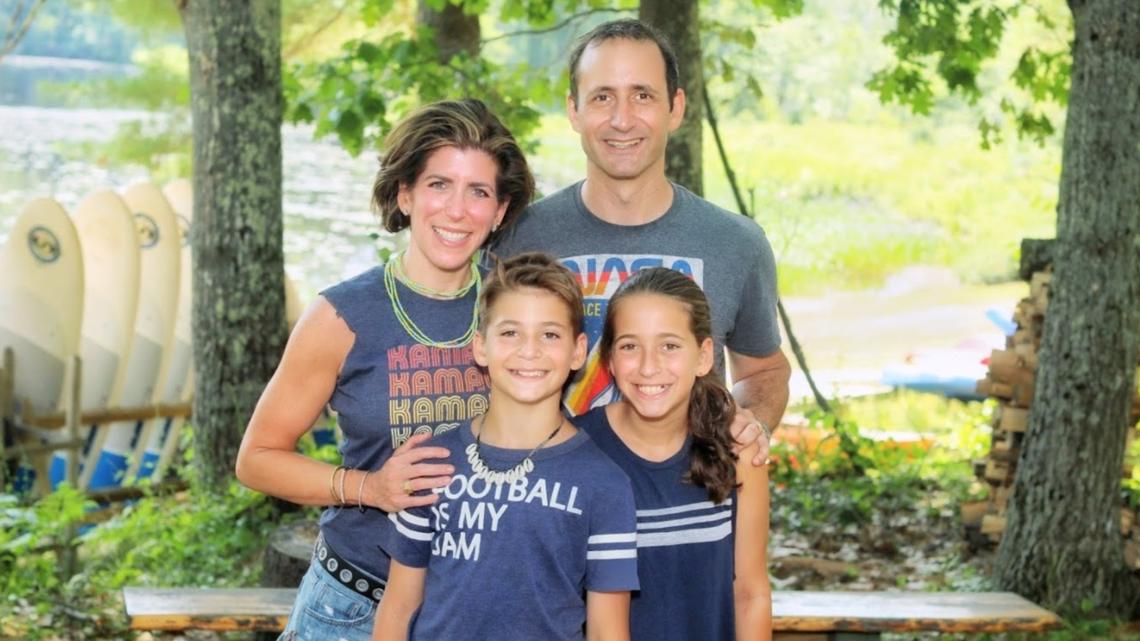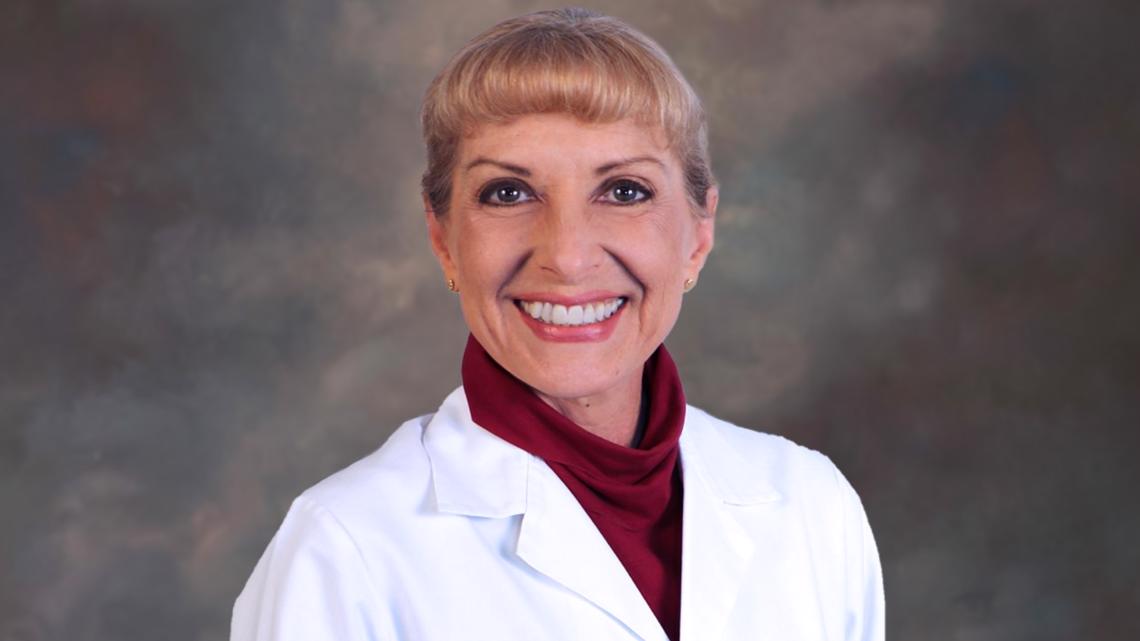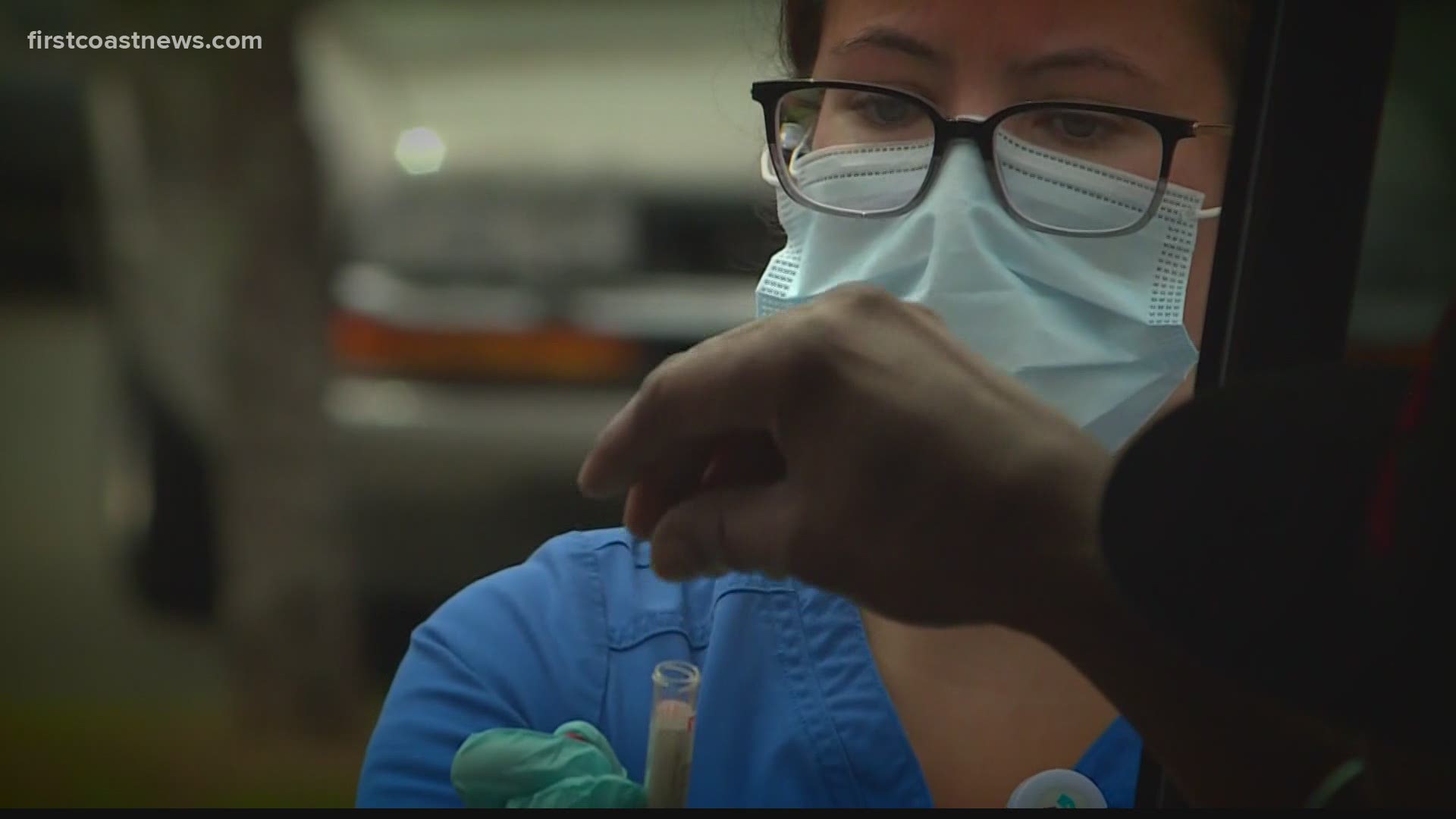JACKSONVILLE, Fla. — Diana Berrent was one of the first people to test positive for the virus in New York City. The professional photographer says she felt great after spending the required time in isolation. But, over the summer, she had a relapse.
"I had tremendous headaches, deep inner ear pain," Diana Berrent said. "I was also diagnosed with COVID onset glaucoma."
Berrent's son also tested positive for COVID-19 during the spring. She said he had mild symptoms, but something shocking happened a few months later.
"He spontaneously lost one of his front adult teeth with no blood loss from apparent vascular damage from COVID," Berrent explained. "It turns out that that's a very common occurrence."


In the medical community, they are known as "long-haulers," tens of thousands of people who continue to have symptoms three months after testing positive for COVID-19, even after tests no longer detect the virus in their body.
"I've started getting some neck pain," Stephen Nobles said. "It's really hard to support my head. Right now, It's right in the center of my neck in the back and it hurts to turn my head to the left or right."
Nobles lives in Jacksonville and is a cancer survivor. He tested positive back in July. Since the summer, he's had a number of medical issues.
"The enzymes in my liver were high. That's gone up," Nobles added. "I've had different issues here in the past and I've had many blood tests ongoing because of cancer and things like that. That's never been affected. So, it's something new that's happened recently."
Fatigue, shortness of breath, chest pain, brain fog, just a variety of problems doctors say plague "long-haulers." Medical experts say you don't have to have a bad case of COVID to experience these symptoms months later.
"The trick is to find what is fueling some of these problems, like fatigue is a very difficult symptom to pin down," Dr. Kathleen Haggerty said. "You know, could it be your thyroid? Could it be your heart? Could it be your lung? Could it be depression? I mean, what is causing you to feel just tired?"
Dr. Haggerty, an internal medicine specialist, heads up the "post COVID-19" program at Watson Clinic in Lakeland, Florida.
"I've learned an enormous amount of the things that can happen," Dr. Haggerty explained. "For example, in the fourth month after having COVID if your hair falls out, that's pretty expected."


Because the virus is so new, Dr. Haggerty says it is still a challenge to find the appropriate treatments and solutions for those dealing with long-term health impacts. That's why Diana Berrent started Survivor Corps, a grassroots network for people to find support and participate in medical research. The group now has more than 150,000 members.
"We have people in their twenties and thirties, who had average cases of COVID ten months ago," Berrent said. "They were marathon runners, and they were fitness instructors, and they are now on feeding tubes, and in wheelchairs. I mean, this is not just oh, I'm feeling a little tired. This isn't a post-viral malaise. This is real."

